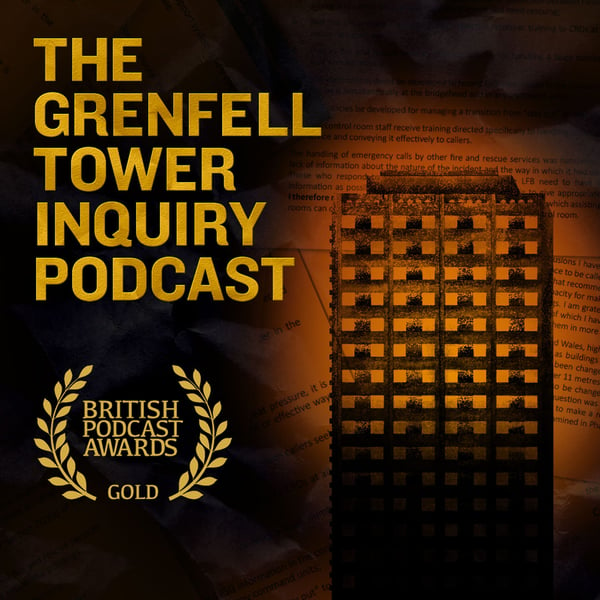149 Race and Class at Grenfell
The Grenfell Tower Inquiry Podcast
BBC
4.8 • 627 Ratings
🗓️ 19 April 2021
⏱️ 23 minutes
🧾️ Download transcript
Summary
This week the inquiry will hear evidence from residents, the Royal Borough of Kensington and Chelsea and the Tenant Management Organisation. Groups affiliated to the bereaved, survivors and residents have called for the inquiry to investigate the role race and class played at Grenfell. In this episode relatives of residents who lived in the tower explain why they think it's important for the inquiry to explore whether discrimination and class played a role in the deaths of their loved ones. Presenter / Producer: Sharon Hemans Studio Mix: Gareth Jones
Transcript
Click on a timestamp to play from that location
| 0:00.0 | BBC Sounds, Music, Radio, podcasts. |
| 0:05.3 | Hello and welcome to the Grenfell Tower Inquiry podcast. I'm Sharon Heemans. |
| 0:10.3 | The inquiry resumes this week after a two-week break. It is now starting to hear evidence about |
| 0:15.7 | the management of the tower and relations between residents, the council and the tenant management |
| 0:20.4 | organisation, which ran it. |
| 0:22.5 | In this edition of the podcast, I'm going to be looking at the role race and class played at Grenfell. |
| 0:27.5 | It may well come up in some of the evidence we hear over the next few months. |
| 0:32.0 | The tower was home to a diverse community and it's something that has concerned many people involved in Grenfell and the |
| 0:37.7 | inquiry. Many groups affiliated to the bereaved survivors and residents have called for the |
| 0:43.3 | inquiry to investigate this issue. Imran Khan represents a group of the bereaved survivors and |
| 0:48.8 | residents. In his opening statement to the inquiry in June 2018, he spoke about Nazanine Aglani, whose mother, |
| 0:55.7 | Sakina Afra Sahabi, lived in flat 151 on the 18th floor and died in the fire. |
| 1:01.7 | As Nazanin says, I think it is striking to look at the face of those that died. They are |
| 1:07.7 | predominantly non-white. If my mother had been a wealthier woman with a different skin colour, |
| 1:13.6 | she would have been alive today. |
| 1:17.8 | Our clients want to know why it is that those that died were predominantly non-white. |
| 1:23.6 | Did that particular fact have any part to play in their deaths? |
| 1:28.1 | And he said, |
| 1:29.4 | There is grave foreboding amongst our clients that the race, religion or social class of the |
| 1:35.7 | residents may have determined their destiny. |
| 1:39.4 | We hope you will agree that this is a grave issue. |
| 1:44.1 | Leslie Thomas represents another group of bereaved survivors and residents. |
... |
Please login to see the full transcript.
Disclaimer: The podcast and artwork embedded on this page are from BBC, and are the property of its owner and not affiliated with or endorsed by Tapesearch.
Generated transcripts are the property of BBC and are distributed freely under the Fair Use doctrine. Transcripts generated by Tapesearch are not guaranteed to be accurate.
Copyright © Tapesearch 2025.

